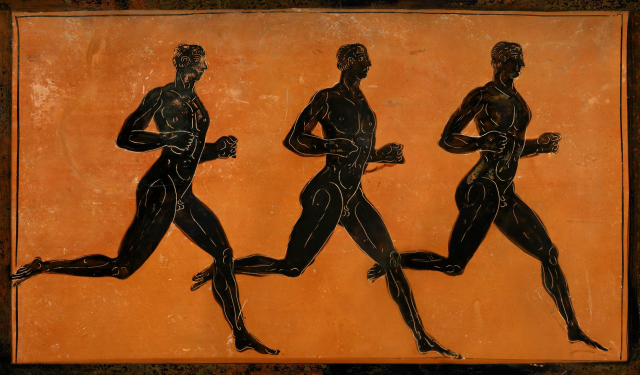The name Marathon comes from the legend of Philippides (or Pheidippides), the Greek messenger. The legend states that he was sent from the battlefield of Marathon to Athens to announce that the Persians had been defeated in the Battle of Marathon which took place in August or September, 490 BC. It is said that he ran the entire distance without stopping and burst into the assembly, exclaiming "we have won!", before collapsing and dying. The account of the run from Marathon to Athens first appears in Plutarch's On the Glory of Athens in the 1st century AD, which quotes from Heraclides Ponticus's lost work, giving the runner's name as either Thersipus of Erchius or Eucles. Satirist Lucian of Samosata first gives an account closest to the modern version of the story, but is writing tongue in cheek and also names the runner Philippides (not Pheidippides).
There is debate about the historical accuracy of this legend. The Greek historian Herodotus, the main source for the Greco-Persian Wars, mentions Philippides as the messenger who ran from Athens to Sparta asking for help, and then ran back, a distance of over 240 kilometres In some Herodotus manuscripts, the name of the runner between Athens and Sparta is given as Philippides. Herodotus makes no mention of a messenger sent from Marathon to Athens, and relates that the main part of the Athenian army, having fought and won the grueling battle, and fearing a naval raid by the Persian fleet against an undefended Athens, marched quickly back from the battle to Athens, arriving the same day.
Mount Pentelicus stands between Marathon and Athens, which means that if Philippides actually made his famous run after the battle, he had to run around the mountain, either to the north or to the south. The latter and more obvious route matches almost exactly the modern Marathon-Athens highway, which follows the lay of the land southwards from Marathon Bay and along the coast, then takes a gentle but protracted climb westwards towards the eastern approach to Athens, between the foothills of Mounts Hymettus and Penteli, and then gently downhill to Athens proper.

